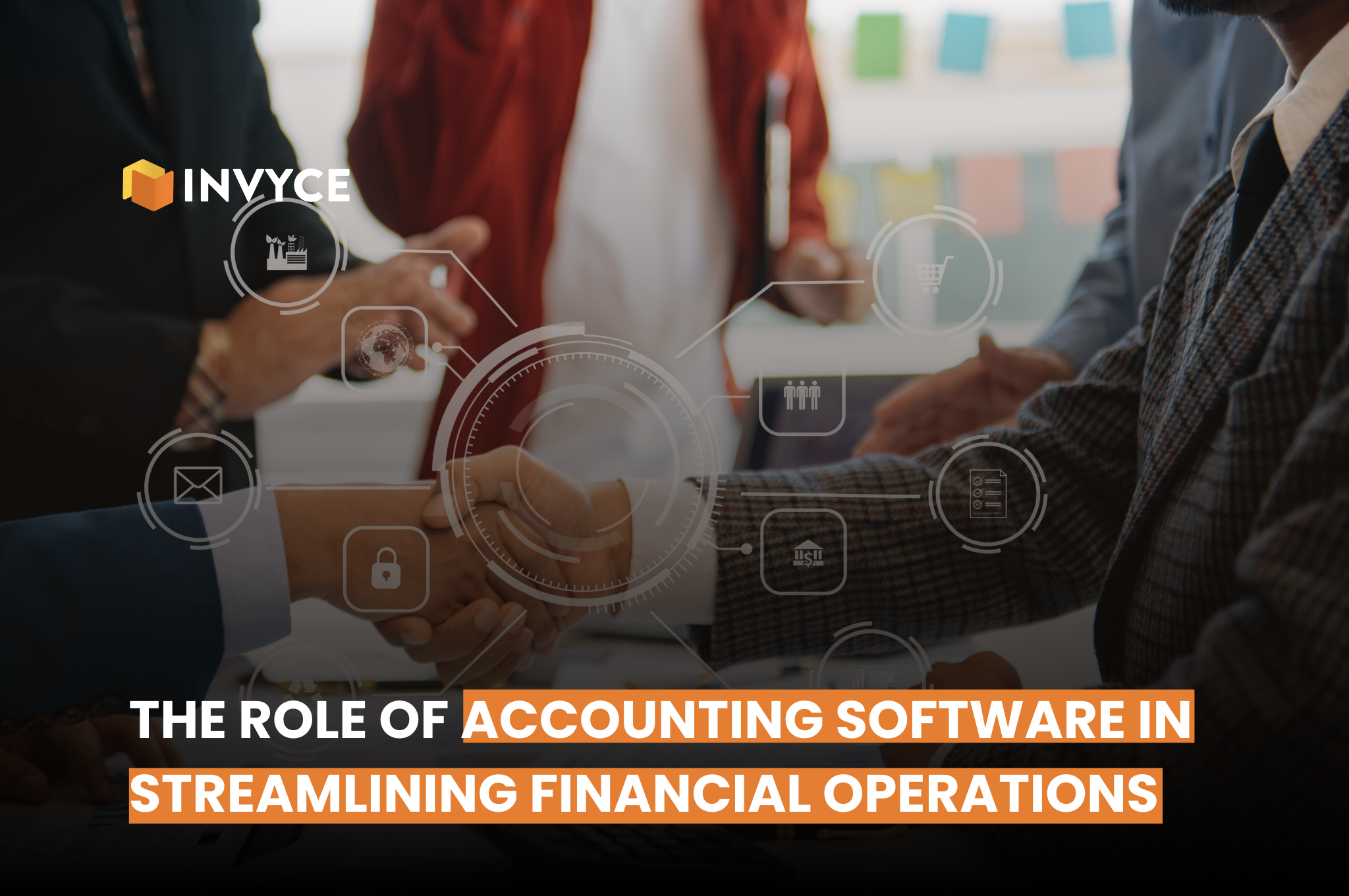11 Oct

In your financial operations, efficiency is important, especially when managing complex tasks that can easily become confusing. Accounting software has become a key solution in transforming financial management, helping you automate processes, reduce errors, and stay compliant with evolving regulations. In this article, we discuss how accounting software can improve your financial operations, focusing on optimizing accuracy, saving valuable time, and simplifying compliance.
Automating Repetitive Tasks
Accounting software greatly simplifies financial processes by automating repetitive tasks like invoicing, payroll, and expense tracking. Instead of spending hours inputting data or checking calculations manually, the system automates these tasks with pre-configured templates and formulas, instantly processing the information.
For example, when generating an invoice, the software pulls relevant data from predefined templates and auto-fills the required fields. Additionally, payment reminders can be scheduled to ensure timely transactions without manual follow-ups. This automation reduces the need for constant oversight and helps avoid errors that typically arise from manual data entry. Moreover, as your business grows, this automation ensures the financial system scales efficiently alongside it.
Improve Accuracy Through Real-Time Data
Accuracy in financial management isn’t just about avoiding errors; it’s about having precise, up-to-the-minute data that informs your decisions. By integrating your accounting software with other business platforms such as point-of-sale systems, bank accounts, and payment processors, you ensure that all financial information is consistently updated and reliable.
For example, transactions are automatically reflected in your accounting system the moment a customer makes a purchase or payment. This integration eliminates the need to reconcile accounts manually or wait for batch updates. With this real-time accuracy, you can confidently make timely, informed decisions that directly affect the direction of your business.
Streamlining Tax Compliance and Reporting
Tax compliance can be one of the most challenging aspects of managing financial operations, especially when regulations change frequently. Accounting software simplifies this by automatically calculating taxes according to the latest laws and maintaining a running record of tax liabilities as income is generated.
The software handles the complexities of tax management by automatically calculating amounts and tracking transactions and deductions. When tax season arrives, generating the required reports and summaries becomes a seamless process. This also proves beneficial in audit situations, as the system stores all the necessary data to demonstrate compliance quickly and efficiently. Overall, automating tax processes ensures accuracy and saves significant time, which would otherwise be spent on manual calculations and record-keeping.
Improving Financial Decision-Making
Smart financial decisions rely on having a clear, comprehensive view of your company’s financial health. Accounting software provides this by offering real-time dashboards and customizable reports that highlight key metrics such as cash flow, profit margins, and expenses.
With this real-time data, you can monitor project expenditures and cash reserves, making immediate adjustments if costs exceed expectations. When planning future investments or developing new business strategies, accurate financial data ensures you base decisions on current, reliable information. Customizable reports focus on the most important metrics, keeping your financial planning aligned with your operational goals.
Improving Security and Accessibility
Security remains a major concern in financial operations, and modern accounting software customize the protection of sensitive data. With features such as encryption and multi-factor authentication, the software ensures that only authorized personnel have access to financial information.
Cloud-based accounting systems add another layer of security by backing up data regularly and ensuring it’s stored in secure environments. In case of system failures or local disruptions, your financial data remains protected and easily recoverable. This also means that authorized team members can access financial information remotely, facilitating more flexible and collaborative working conditions, especially if your business operates across multiple locations.
Increasing Efficiency and Reducing Costs
By automating financial processes and reducing manual tasks, accounting software significantly increases operational efficiency. It saves time and resources, enabling teams to focus on more strategic responsibilities, such as financial analysis and planning.
The software minimizes the risk of costly mistakes-such as incorrect filings or missed deadlines-which can result in financial penalties. The overall reduction in time spent on routine financial tasks, combined with the improved accuracy of the software, leads to substantial cost savings over time. The initial investment in accounting software quickly pays off as it reduces operational costs and enhances the quality of financial management.
Promoting Collaboration Across Teams
In many businesses, different departments often handle their own budgets, leading to fragmented financial data. Accounting software centralizes financial information in one platform, making it easier for teams to collaborate and access consistent, up-to-date financial data.
For example, your sales and marketing departments can access relevant financial reports directly through the software, without having to request manual reports from the finance team. This streamlined access ensures that all teams work from the same financial data, improving decision-making and fostering better coordination between departments. With everyone aligned on the same financial metrics, you reduce the potential for miscommunication and data silos.
Conclusion
Incorporating accounting software into your financial operations goes beyond mere modernization. It creates a more efficient, accurate, and secure financial management system that supports your business growth. By automating routine tasks, enhancing real-time accuracy, improving tax compliance, and fostering collaboration, accounting software enables you to focus on making informed decisions that drive your business forward. These systems streamline operations, reduce costs, and build your financial management for long-term success
Marjina Muskaan has over 5+ years of experience writing about finance, accounting, and enterprise topics. She was previously a senior writer at Invyce.com, where she created engaging and informative content that made complex financial concepts easy to understand.
Related Post
Copyright © 2024 – Powered by uConnect



Marjina Muskaan